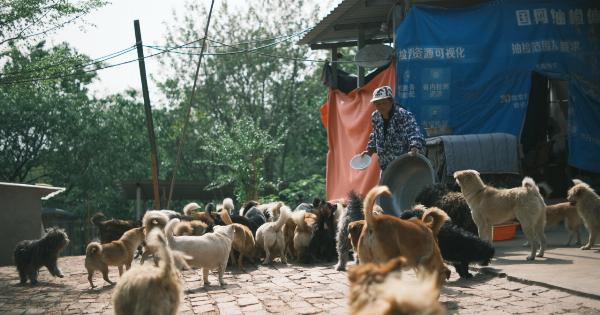As a dog parent, it can be alarming to see your furry friend lose hair. Hair loss in dogs, also known as alopecia, can be caused by different factors, but one of the most significant contributors to this issue is diet.
In this article, we will explore the connection between diet and hair loss in dogs.
Understanding Hair Loss in Dogs
Dogs can lose hair from different parts of their bodies, including the legs, face, back, and tail. Hair loss can be temporary or permanent, and the severity can vary depending on the cause. Some of the causes of hair loss in dogs include:.
- Parasites: Parasites such as mites and fleas can cause hair loss through excessive scratching and biting.
- Hormonal imbalances: Hormonal changes can lead to hair loss in dogs, especially if the dog suffers from an endocrine disorder.
- Stress: Just like humans, dogs can suffer from hair loss due to stress and anxiety.
- Allergies: Some dogs can experience hair loss due to allergic reactions from food, medication, or environmental factors such as pollen or dust mites.
While these are some leading causes of hair loss in dogs, one of the most overlooked contributing factors is diet.
The Connection between Diet and Hair Loss in Dogs
A well-balanced diet can promote healthy hair growth in dogs. When a dog’s diet is lacking essential nutrients, the hair can become thin, dull, and even start falling out.
Dogs need a diet that is rich in protein, vitamins, and minerals to maintain healthy skin and coat. So, how can poor diet lead to hair loss in dogs?.
Protein Deficiency
Protein is an essential nutrient that is required for healthy hair growth in dogs. Dogs that consume a low protein diet can experience hair loss as they do not have enough building blocks to produce healthy hair.
Proteins help to create amino acids, which are necessary for forming the hair structure. When the dog’s diet lacks protein, it can result in brittle and weak hair that falls out easily.
Vitamin Deficiency
Vitamins such as Vitamin A, B, C, and E play a vital role in maintaining healthy skin and coat in dogs. A lack of these vitamins in your dog’s diet can lead to hair loss.
For instance, Vitamin A helps to regulate the production of sebum, an oil produced by the skin that keeps the coat moisturized and healthy. A deficiency in Vitamin A can lead to dry and itchy skin, which can cause hair loss.
Mineral Deficiency
Minerals such as Zinc, Copper, and Iron are essential for healthy hair growth in dogs. Zinc, for example, is required for cell division, making it necessary for hair growth.
Copper helps to produce melanin, which is responsible for coat color and thickness. Iron helps to support healthy blood circulation, delivering essential nutrients and oxygen to hair follicles. A lack of these minerals can result in poor hair growth and hair loss in dogs.
How to improve your dog’s diet?
As a dog parent, you want to ensure that your furry friend is getting the best nutrition possible. Here are some tips to improve your dog’s diet and promote healthy hair growth:.
Consult with Your Vet
Your veterinarian can help you determine the best diet for your dog, depending on its age, breed, and health status. They can recommend the right amount of protein, vitamins, and minerals required for healthy hair growth.
Choose Quality Dog Food
Choose dog food that is high in quality protein sources, essential vitamins such as A, B, C, and E, and minerals such as zinc, copper, and iron. Avoid dog food that contains fillers, artificial colors, and preservatives.
Add Supplements to Your Dog’s Diet
Supplements can help provide your dog with essential nutrients that may not be present in their diet. For example, fish oil supplements can help improve coat health and reduce inflammation.
Vitamin supplements can also be used to address specific deficiencies in your dog’s diet.
Avoid Food Allergens
Dogs can develop food allergies that can lead to hair loss. When choosing dog food, avoid ingredients that your dog is allergic to or that trigger allergic reactions such as itching, rashes, and hair loss.
Ensure Your Dog is Hydrated
Dehydration can lead to dry and brittle hair that falls out easily. Make sure your dog has access to clean water and encourage them to drink regularly.
Conclusion
While diet may not be the sole cause of hair loss in dogs, it can significantly contribute to this issue. By providing your dog with a well-balanced and nutrient-rich diet, you can promote healthy hair growth and prevent hair loss.
Consult with your veterinarian for specific dietary recommendations that match your dog’s needs. Remember that a healthy diet not only improves hair health but also contributes to overall health and well-being.






























